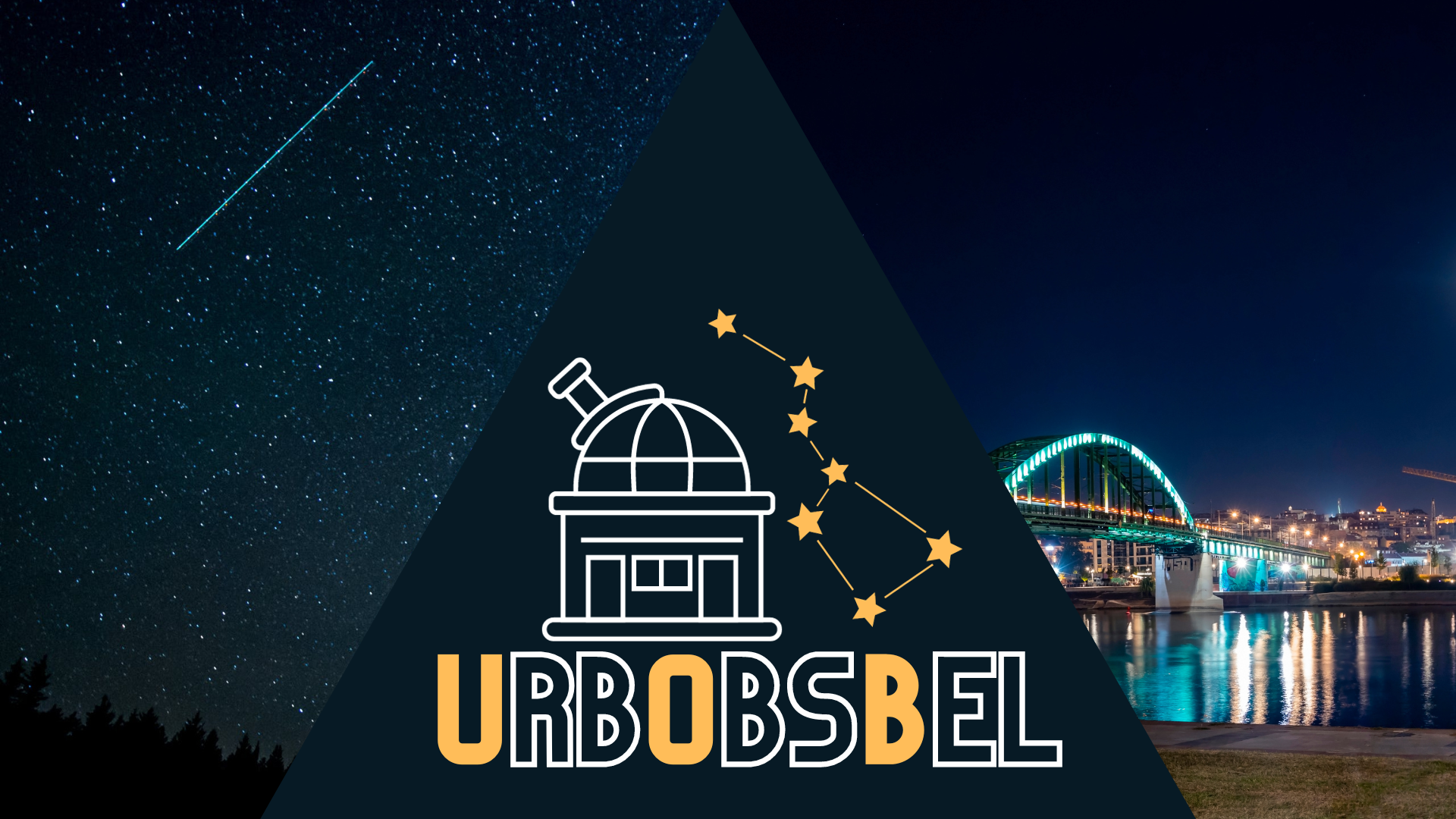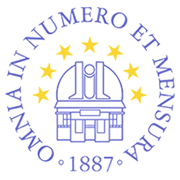
PRISMA Project
Urban Observatory of Belgrade -- UrbObsBel, рег. број 6775
Estimated implementation time: January 1, 2024 -- December 31, 2026.
Project website
The project aims to create the Urban Observatory of Belgrade, a new observing station within the Astronomical Observatory from Belgrade. Among the main goals of the project is to measure and study one of the least understood forms of pollution on Earth, light pollution, and it is also planned that observations will provide information on the distribution of energy consumption, which has a major impact on the environment and ecosystems. Light pollution is one of the least understood forms of pollution that affects all living things on Earth. Therefore, it is necessary to make precise measurements using well-defined astronomical techniques in order to determine its intensity. Light pollution, for example, can be defined as the difference in sky brightness compared to an unpolluted night sky. Measurements taken in a dark location away from any artificial light are compared with measurements taken in locations near sources of intense light pollution. The difference between these measurements shows how much light has been added by human activity over the natural level of darkness. It is estimated that light pollution increases significantly every year by an average of 10 percent, which leads to its doubling in a period of less than 8 years.
The main goal of the UrbObsBel project is the further improvement and regional integration of the research capacities of the Astronomical Observatory of Belgrade through the construction of a new structure for urban observations. These observations will provide information on the distribution of energy use, which has a major impact on the environment and ecosystems. This project will analyze the connections between urbanization, ecology, industry and, especially, astronomy. Measurements will be made in Belgrade, as well as from the Vidojevica Astronomical Station near Prokuplje, one of the few remaining dark areas in Serbia. The obtained measurements will be processed and analyzed on a special server that will be installed at the Observatory, and we also plan to include activities related to popularization, that is, informing the public about the problem of light pollution and the possibilities of solving it. One of the goals of the project is the analysis of the impact of light pollution on people's health, and the support of the Municipality of Zvezdara was received for the realization of this project.
The main task of the Urban Observatory project is the mounting of observational equipment on the flat roof of the Astronomical Observatory Tower, the highest point of the urban part of Belgrade. Using this exceptional position, we plan to measure and analyze as many variables important to modern city life as possible. Such a synoptic view of the city will provide the possibility of observing the city on different time scales, ranging from minutes to months and years. This location provides the opportunity to observe not only the narrower city zone (the center of Belgrade), but also its surroundings, e.g. the forest and Danube river. The construction of an observation facility in the city environment to study light pollution and dynamic processes in Belgrade will enable observation activities in different weather conditions throughout the year. Given that a couple of instruments will be mounted at the Vidojevica Astronomical Station, one of the last dark locations in Serbia, it will be possible to analyze the problem of light pollution in Serbia in detail.
By creating a new observing station in Belgrade that will be used for various tasks (measurement of sky brightness, atmospheric visibility, determination of cloud cover and measurement of sky pollution), the Urban Observatory project will contribute to our understanding of the complex aspects of light pollution. It is expected that various potential users of observation and analysis, in addition to the scientific community, will also be city administrations, decision makers, businessmen, ecological organizations, institutions in the field of environmental protection, the general public, the media, educators and all interested parties. This project will enable the optimal use of observational resources and the international exchange of knowledge and results with other related projects. The results of the project will be used by the Municipality of Zvezdara and the City of Belgrade, as these measurements will provide elements for making decisions in the direction of creating a better environment that will improve the health of the population of Belgrade and its surroundings. As part of the long-term strategy regarding light pollution, a discussion will be initiated on the design of lighting adapted to dark skies, such as direction, spectral composition and limited lighting duration, and it is also planned to initiate the construction of dark sky parks in Serbia that already exist in neighboring countries.
A team of 8 researchers from 4 scientific institutes from Serbia will be involved in the Urban Observatory project. The head of the project is Dr. Srđan Samurović, principal research fellow, from the Astronomical Observatory. The leader of work package no. 2, which refers to the acquisition and maintenance of equipment, is Dr. Zorica Cvetković, principal research fellow, from the Institute of Physics, the leader of work package no. 3, which refers to the installation and maintenance of the software, is Dr. Rade Pavlović, principal research fellow, also from the Institute of Physics, the leader of work package no. 4, which refers to data analysis, is Dr. Goran Damljanović, principal research fellow from the Astronomical Observatory and, finally, the leader of work package no. 5 who deals with the dissemination of the results is Dr. Dajana Bjelajac, assistant professor at the Faculty of Sciences of the University of Novi Sad. The project team also includes Dr. Zoran Simić, principal research fellow from the Astronomical Observatory, Dr. Dragan Lukić, research associate from the Institute of Physics and Dr. Branislav Rovčanin, assistant professor from the Faculty of Medicine, University of Belgrade.



